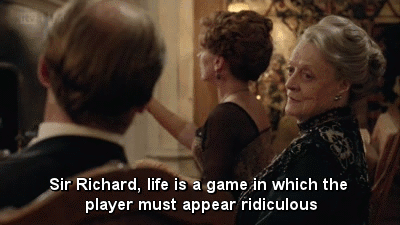
When I was traveling to Costa Rica with my good friend, we had a 7-hour layover in Dallas. We were tired and decided to take a nap for a few hours. We set our alarms before our flight was supposed to leave, but our phones didn’t adjust for the correct time zone.
We woke up thinking that we had plenty of time to spare and strolled casually towards the departure gate. There was nobody there.
Looking outside, we saw our plane flying off into the distance!
We stood there for a few seconds taking in what just happened. And then we turned to each other...and we just laughed.
“Well, that’s inconvenient,” I said. “Yeh, just a little bit,” my friend responded.
That was the extent of our reactions. We booked a new flight and had a fun time hanging out in the airport for another night.
It would have been easy to say “gosh, why are we so DUMB?” and fallen down a spiral of negativity and frustration. And surely, many people would have. But we chose to describe the situation differently … “a little inconvenient.” This relatively neutral world diffused any negativity before it could take root.
Our choice of words and the metaphors we choose to use determine how we see the world.
Donald Trump has said that life is a “test.”
Voltaire wrote frequently that life is a “battle.”
Helen Keller believed that “life is an adventure, or nothing at all.”
Shakespeare famously said “all the world’s a stage.”
Albert Einstein believed that life was more like a game.
You can see how differently all of them approached their lives. If you repeat a word enough times, it becomes your reality.
When your colleague approaches you and says, “I’m worried about what you’re doing with this project,” you tense up and become defensive. That’s probably not going to help the conversation. But if they say, “hey, I have a small concern” or “I have a question about this thing,” your going to be more receptive.
When you’re at an event and introduce your husband or wife as “my partner,” it sounds devoid of emotion, and like you’re in business. What if you said, “my better half” or “significant other” or even “soulmate?” They probably feel special. A simple change of words invokes a different sense of emotion, both for you and the listener.
Rather than seeing something as "an impossible challenge," or "a stressful problem," why don't you call it a "mystery" or a "curious problem to be solved?" If you’ve “hit a wall” in your life, why don’t you drill a hole through it, tunnel under it, or jump over it?
We all fall into patterns of using the same words, but simply changing them can change our emotions and how we approach life. The point is that the words you use are your choice.
The first step is to take notice of what words you use frequently and write them down, today. Are there any metaphors that you use frequently when you’re upset and challenged that influence how you approach life?
After you’ve written them down, brainstorm a more positive set of words. You can use this list for starters. Write them down and put them on your wall or computer screensaver. Ask a friend to call you out next time they hear you using that phrase.
Notice what kind of thoughts you have after employing your new vocabulary, and take note of the change in feeling in just a few days!
Here are some links to get you started transformational vocabulary:
- The psychology of transformational vocabulary.
- 10 Day New Vocab Challenge.
- Understanding your own symbols
- Word - to be replaced with

Posted from my blog with SteemPress : https://mishayurchenko.me/2019/02/26/is-life-a-battle-test-adventure-journey-game-or-stage/